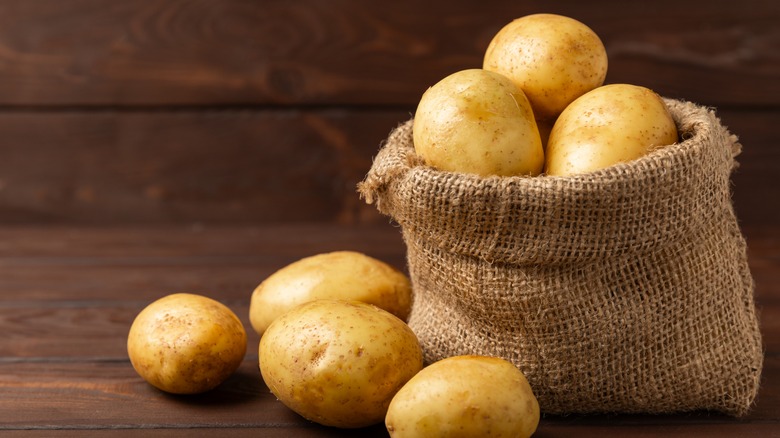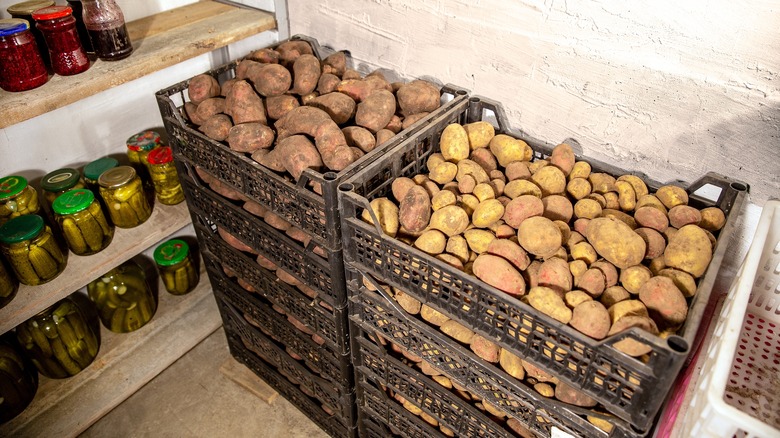The Worst Places In Your Kitchen To Store Potatoes
Potatoes may seem tough and rugged, but they're one of the foods that spoil more quickly in storage than people think. If you have a problem with your potatoes sprouting quickly or turning green, wrinkly, and slimy, you're likely storing them under the wrong conditions. It's possible to keep spuds for two to three months, but you have to protect them from their mortal enemies: light, heat, and poor ventilation.
When kept next to a window or on the kitchen counter, potatoes can come into contact with sunlight or fluorescent light. Both of these can cause them to undergo photosynthesis, produce chlorophyll, and take on a freaky green hue that could be accompanied (particularly if sunlight was involved) by the production of the illness-inducing chemical solanine. But think twice before hiding them away under your kitchen sink or in a cabinet near your oven: The higher temps in these spots can dry out potatoes and cause them to sprout. The top of the fridge is too hot for tots, too. Condenser coils in older fridges are located up there; plus, heat rises.
The solution may seem obvious — in the fridge! – but this is actually one of the most common storage mistakes that are ruining your food. Keeping potatoes at temps below 45 degrees Fahrenheit can convert their starches to sugar, causing discoloration upon cooking and sweet off-flavors, among other potential issues. Finally, if stored in a container with no ventilation, like a plastic bag or a lidded bucket, potatoes can become too moist and spoil quickly. Even heaped together with a bunch of pantry goods — cans, bags of rice, and so on — means inadequate airflow.
Where and how to store potatoes
If you're scratching your head at the quantity of "don'ts" involving potato storage, rest assured there are actually good places to keep your spuds. First, though, a word about temperature: The optimal range of 45 to around 55 degrees Fahrenheit, combined with other good potato-storage guidelines, keeps spuds fresh for two to three months. If you have no way to create those temps in your home or geographic region, your raw potatoes still have a shelf life of one to two weeks at room temperature when kept out of heat, light, and crowded conditions. Don't buy more spuds at once than you can cook in that timeframe, and you should be good.
If you do happen to have a cool, dark basement or an old-school root cellar, this is the best place to keep your potatoes. If you have neither of these, the chilly corner of a shed or your garage might provide what you're looking for. Otherwise, pick any room-temperature spot away from the trifecta of heat, light, and poor air circulation, opting for something like an open paper or burlap bag, or a basket in a dark cupboard.
Just make sure no other fruits or veggies are nearby. Think of taters as hermits; potatoes sprout faster when kept near onions, apples and garlic due to the emission of ethylene gas, a plant hormone that causes ripening. So while a basket of taters, onions, and apples might make a rustic still-life, it's a bad setup for shelf stability.

